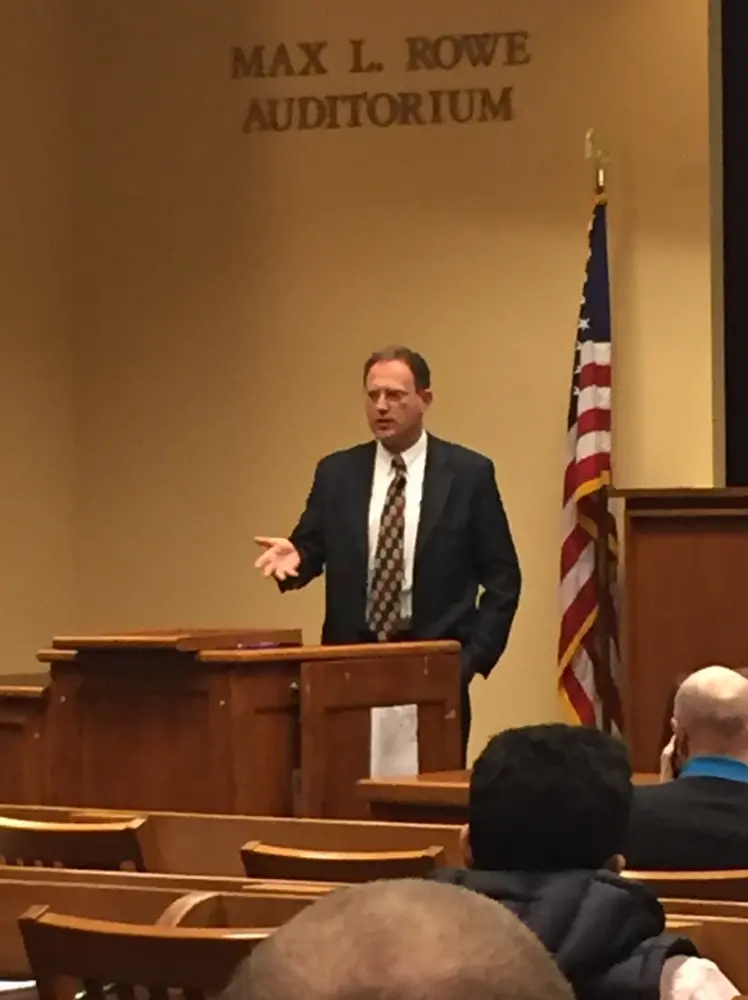
Professor Amnon Reichman visited the University of Illinois College of Law on March 8-9, 2018. The visit was sponsored by the Israel Studies Project.
Amnon Reichman is Associate Professor of Law at the University of Haifa and Principal Investigator at the Minerva Center for the Rule of Law Under Extreme Conditions. His areas of expertise include separation of powers, theories of judicial review, human rights, and comparative constitutional and administrative law. In 2016, Professor Reichman served as President of the Israeli Law and Society Association. He received his LL.B. from the Hebrew University of Jerusalem, an LL.M. from the University of California at Berkeley and an S.J.D from the University of Toronto. After graduating from law school, Professor Reichman served as a Law Clerk to the Justice Aharaon Barak at the Supreme Court of Israel.
The centerpiece of Professor Reichman’s visit to Illinois was a public lecture on The Promise of Judicial Appointments in the Promised Land: Law and Politics in the Formation of the Israeli Judiciary. Professor Reichman gave a dazzling account of the origins, transformations, and current composition and activities of the Supreme Court of Israel. He explained how the court, though lacking the sort of constitutionally-protected powers of the American judiciary, came to establish itself as a very influential institution in Israeli society and politics and among the most powerful courts in the world. Professor Reichman gave a decade-by-decade account of the wise and ambitious jurists who led the court to preeminence and of the political battles the court endured along the way. Professor Reichman’s talk was especially timely given recent criticism of the court as too interventionist and efforts by Justice Minister Ayelet Shaked to secure the appointment of justices who will take a more modest view of the court’s role in the Israeli political system. Professor Reichman fielded many audience questions ranging from his view of the role of courts in boosting and preserving democracy; whether the Israeli Supreme Court can serve as a model for its neighbors; and the pros and cons of the unique nine-member selection committee that is responsible for selecting the court’s members. Professor Francesco Biagi, a comparative law expert visiting from the University of Bologna, provided commentary on Professor Reichman’s lecture; he provided insightful comparisons between the Israeli judiciary and its European counterparts.
In addition to the public lecture, Professor Reichman met with students and faculty from across the university to discuss issues in Israeli politics, comparative law, and relationships between the U.S. and Israel, and to identify shared research interests. A breakfast session, co-sponsored by the Jewish Law Students Association and the International Students Association, provided students with their own opportunity to engage in a spirited discussion with Professor Reichman on a wide range of issues.
This was Professor Reichman’s first visit to the University of Illinois but he has promised to return soon. He has also already extended invitations to faculty members at Illinois to visit in Haifa.
Jason Mazzone
Albert E. Jenner, Jr. Professor of Law
Director, Program in Constitutional Theory, History and Law
University of Illinois
College of Law